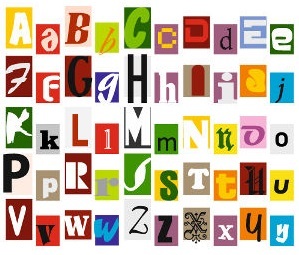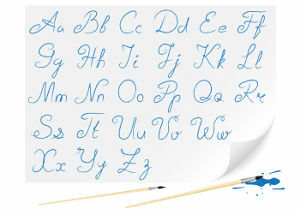Orthography it is the system in which the writing of words is conventionalized. Thanks to it, the spelling of words is preserved and systematized. Spelling is important because it prescribes rules and usages, as there is no perfect identity between phonemes, as similar phonemes can be represented by different graphemes. Have you ever thought if we didn't have this very important resource to answer our questions? We would be lost in the complexity of our Portuguese language, especially in its written form.
The word spelling is made up of two stems of Greek origin: ortho (element used as prefix) = right, straight, exact and spelling = writing action. So spelling means writing right action. The fact is that writing right requires a lot of study and dedication, and learning to write is an ongoing process that will be experienced throughout our lives. Therefore, knowing the rules that govern the spelling of our language means a greater probability of proficiency in the written modality.
In Brazil, the practiced spelling system was established in the Bases of the new Orthographic Agreement of the Portuguese Language, in 1990. The agreement defines the general principles for writing the language, remembering that the same does not occur with pronunciation, as it is associated with historical and cultural factors (Remembering that the Portuguese language is spoken in other countries, such as Portugal – the language matrix, Mozambique, Angola, Cape Verde, Guinea-Bissau, East Timor and São Tomé and Prince). To reproduce the Portuguese language in writing, we use the letters, listed in what we call
alphabet. Our alphabet consists of twenty-six letters, represented by uppercase and lowercase letters:
The alphabet is composed of twenty-six letters and each one of them is represented with a capital and a small form.

Written by hand, the alphabet is governed by the technique of calligraphy, which consists of the "good cut of the letter"
To adequately represent phonemes, spelling uses lexical notations, graphic signs used in some words that indicate the exact pronunciation or writing of the word. Examples of lexical notations are: accent (acute, grave or circumflex), tilde, apostrophe, cedilla and hyphen. The uses of these notations must obey specific rules, prescribed by the grammar. Punctuation is also a very important element, whose rules are also inscribed in the spelling principles.
When we know the rules, it becomes easier to write correctly, and, to know them, it is essential that we exercise our knowledge acquired through the practice of writing. Another exercise that will certainly help us is looking up the dictionary whenever there is doubt about the spelling of a certain word. Therefore, learning to write correctly is a complex exercise, but it leads to excellent results!
By Luana Castro
Graduated in Letters
Source: Brazil School - https://brasilescola.uol.com.br/o-que-e/portugues/o-que-e-ortografia.htm
